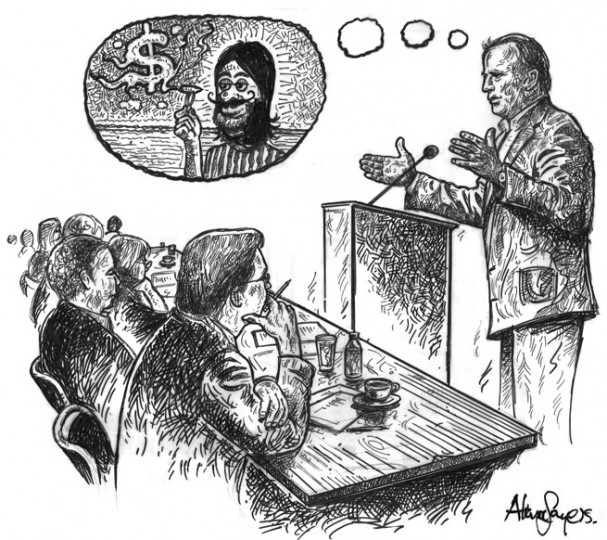Credibility up in smoke? Building a brand in a controversial industry
Imagine your company not being graded for its merits, but on public perceptions based on lack of information or the actions of others. It’s hard enough keeping a business alive to begin with, what if people viewed you as a crook before you started? This happens. Let’s explore.
In October 2013, I was invited to teach a branding seminar at the Greenline Academy Medical Marijuana Conference in Toronto. Being a non-smoker with no knowledge of the topic, my first thought was: what can I offer people in this industry? But I was intrigued. Earlier in the month the federal government had announced the launch of a $1.3 billion medical marijuana industry and the topic had been covered by CBC News, The Toronto Star, Business In Vancouver and The Toronto Sun. I accepted the gig, reminding myself that the core principles of branding and strategy apply just as much – perhaps more – in controversial industries.
Controversy rooted in stigma
Outspoken voices in the worldwide marijuana discussion range from Vancouver’s own Mark Emery, to Cheech & Chong, to Virgin CEO Richard Branson, to Ronald Reagan and his famous “War on Drugs.” Needless to say, there are stigmas. The Greenline Academy conference hall was full, but attendees declined to be photographed and many hid their nametags. My brother’s advice before the seminar? “Distance this talk from your brand or you’ll lose clients.” All this despite the Canadian government’s recent endorsement of the industry.
I was reminded of my own conditioning while meeting two brothers who I’d seen sporting hip-hop fashion around the conference: baggy clothes and hoods up. My first impression? “Here are two guys who think they can get rich while getting high.” I was wrong. One brother was confined to a wheelchair due to a swimming accident and experienced muscle spasms to the point that his legs would pull him out of bed at night, even hitting him in the face and breaking his nose on one occasion. Medical marijuana controls his symptoms, enabling him to sleep and function in a way he could not before.
Public opinions aren’t written in stone
My seminar’s message was simple: public opinion can be changed. Sometimes the best perspective is from outside, so let’s step away from the controversial world of medical marijuana and look at our favourite breakfast meat… bacon. Did you know that Edward Bernays – creator of the term “public relations” – was hired by the bacon industry to fight for bacon’s place on America’s dinner plates? They wanted to increase sales and saw this as the obvious path. But solutions aren’t always obvious.
Instead of fighting giants, Bernays approached from a different angle. He commissioned doctors to publish papers claiming that “breakfast is the most important meal of the day.” The papers also promoted the concept of the “Big Breakfast,” which included – you guessed it – bacon. Then the advertising campaigns started. Bacon sales went through the roof. This strategic orchestration of PR, branding, marketing, and advertising made the bacon and eggs breakfast combo a cultural institution.
Success through truth
Bernays realized that bacon’s problem wasn’t branding or PR – it was competing in the wrong market. And remember this vital fact: breakfast is important! His campaign to change public opinion was based on truth. Bernays also recognized that, as a dinner entree, bacon doesn’t have the appeal of steak, roast beef or chicken breast.
I’m sure Bernays would love this medical marijuana challenge. But it’s an extreme example. Look at yourself. Are you a real-estate agent wanting to distance yourself from the stigma of the glorified car salesman? A life coach trying to establish trust among people who’ve had negative experiences with your contemporaries? Or a brand strategist fed up with being thought of as an overpriced graphic designer who talks too much?
Being a thought leader in a controversial market means identifying, developing, and promoting the benefits of your industry while acknowledging and addressing the negative aspects. If you’re undertaking an ambitious initiative like establishing a brand in an untested or contentious industry, here are three things to keep in mind:
- Establish credibility and position yourself correctly. Amass the proverbial 10,000 hours of experience that it takes to truly understand your trade. A few weeks, a certificate and a $2,000 brand package will not cut it.
- Once your position is established and reinforced, speak up! Be proactive, spread the word, defend your statements and start reframing what society thinks.
- If you’ve hired an agency to help with your project, keep an open mind. The bacon industry thought their path to profit was on America’s dinner tables. If they’d refused to budge from this belief, their story would be very different.


